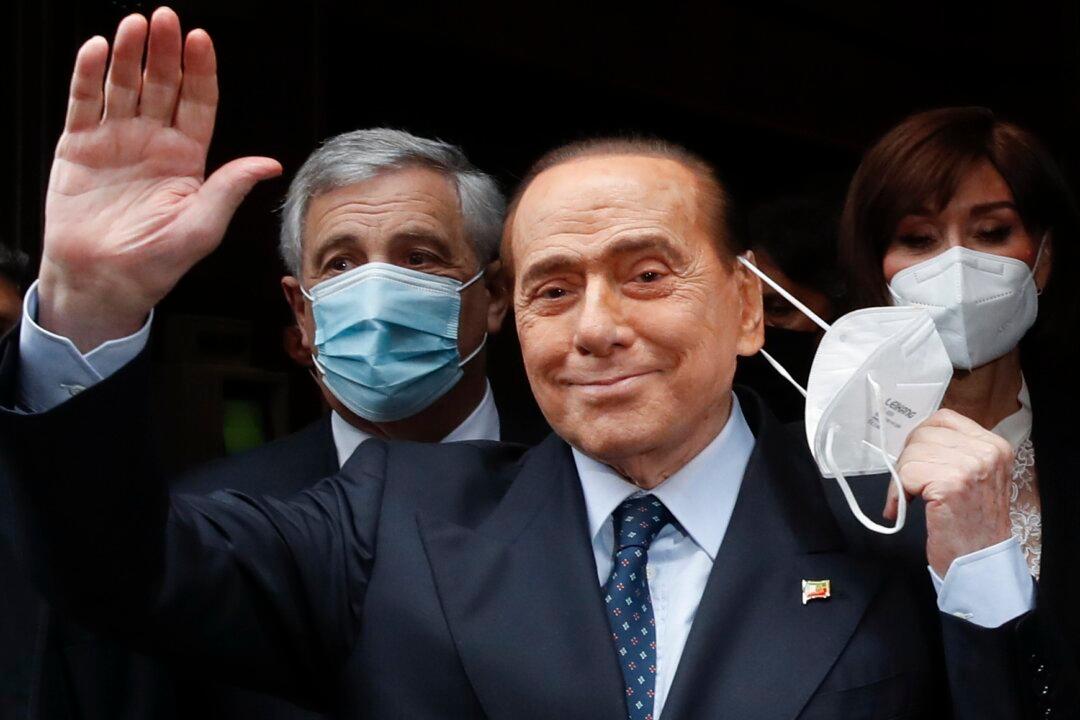ROME—Former premier Silvio Berlusconi on Saturday bowed out of Italy’s presidential election set for next week, though he insisted he had nailed down enough voters to become head of state.
Berlusconi, 85, said in a statement that after much reflection he had opted to “take another step on the path of national responsibility.” The media mogul asked his supporters not to vote for him.





